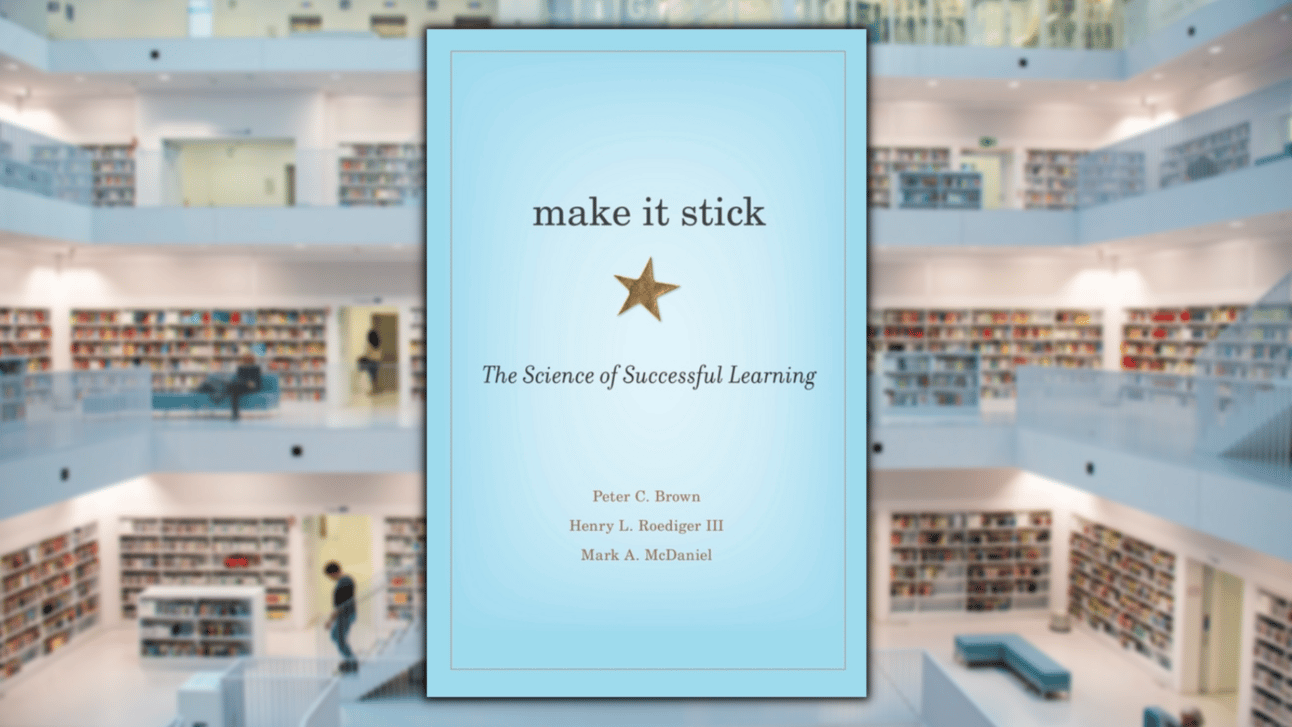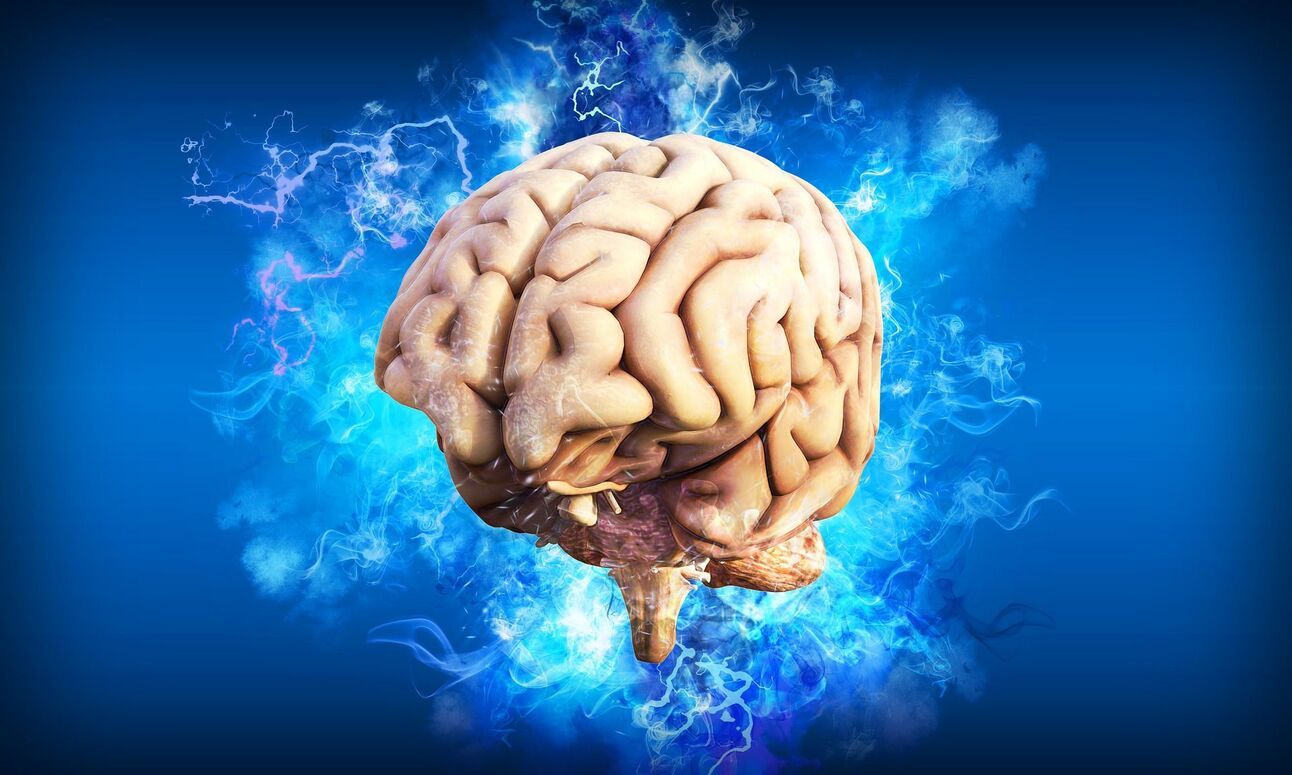Read on The Reading Life.com | Read Time: ~9 Minutes
📚 Hey, let’s talk about elite study strategies to help you remember anything.
Today’s book is called Make It Stick, and it represents the gold standard when it comes to books about “learning how to learn.”
It’s just phenomenal, and highly acclaimed - I certainly found it extremely helpful.
Helpful enough to write a complete breakdown of Make It Stick covering 10 key ideas, dozens of excellent book notes and takeaways, action steps, and more.
My full breakdown is also completely free, and you can read it in its entirety right here.
I’ll give you a little preview in this email though.
I also have a new YouTube video, published just yesterday.
It breaks down my recent $300 book haul, including two books that are definitely going to have me placed on some sort of national security “watch list.” Haha.
Anyway, if you’re so inclined, you can watch it right here.
I bought 10 books, and in the video I mention a few others that have had a tremendously positive impact on my life, so you’ll come away from that video with quite a few great book recommendations.
But now, let’s learn how to learn! This book will teach you how to…
This Book is For:
*Ambitious students who want to gain a distinct competitive advantage in the modern academic environment, or those students who simply want to pass all their exams with flying colors and with much less time spent studying.
*Passionate, dedicated teachers who wish to bring the latest science and most up-to-date pedagogical techniques into their classrooms and lecture halls, thereby maximizing the probability of success of the students entrusted to their care.
*Lifelong learners who want to gain mastery, or at least make astounding progress, in a new pursuit or activity as quickly as possible, and in the most efficient way possible too.
Summary:
“It comes down to the simple but no less profound truth that effortful learning changes the brain, building new connections and capability.
This single fact - that our intellectual abilities are not fixed from birth but are, to a considerable degree, ours to shape - is a resounding answer to the nagging voice that too often asks us, 'Why bother?'
We make the effort because the effort itself extends the boundaries of our abilities. What we do shapes who we become and what we're capable of doing. The more we do, the more we can do."
Everything you want in life is on the other side of effort and sacrifice. In life, we appreciate what we worked hardest for, and in education, we remember what we struggled to learn.
That's one of the core messages in Make It Stick, which represents the gold standard when it comes to books about effective study strategies and efficient learning.
It's also one of the only scholarly books on learning to contain the word "motherf*****," but it's only used in the context of one of many spectacular examples of learning in action that makes this book so special!
Basically, we remember the information that we recall to mind most frequently, and the more effortful it is to do so, the more entrenched it becomes in our minds and the less likely we are to forget it when we need to use it.
This is known as a "desirable difficulty," which is one of many counterintuitive ideas you'll encounter across the landscape of the science of successful learning.
It means that instead of making learning easier, we need to make learning harder if we want it to stick.
Even though this is true, well-meaning teachers and educators all over the world persist in perpetuating the use of ineffective and inefficient study strategies that they think are working but are actually next to useless.
The science is ahead of the application in most cases, but if you read Make It Stick, you'll have a major competitive advantage over most people.
Something like 80 percent of all students (in some surveys) say that their primary study strategy is rereading their textbooks and highlighted notes, which is actually one of the least effective study strategies out there.
And don't even get the authors started on "learning styles" theory!
The fact is that the more your brain has to work, the deeper it will entrench new learning and the more likely you will be able to recall it when you need it.
As we'll explore later on, there are several illusions of knowing that make it seem as though learning has taken place when it really hasn't.
And there are far more effective things you can be doing to study and improve than cramming, rereading, highlighting, or practicing the same move over and over and over again.
At the end of the day, the universe rewards effort, exertion, and striving.
We need to go beyond what we think we can do if we want to find out how far we can really go.
This same theme - the hardest path usually being the best - shows up again and again in life, and Make It Stick will show you how applying that wisdom to your studying and your practicing will allow you to reach levels of mastery that are simply unavailable to people who aren't familiar with the science of successful learning.
Key Ideas:
#1: We Are Only Beginning to Understand What the Human Brain Can Do
“We have been raised to think that the brain is hardwired and our intellectual potential is more or less set from birth. We now know otherwise.
Average IQs have risen over the past century with changes in living conditions. When people suffer brain damage from strokes or accidents, scientists have seen the brain somehow reassign duties so that adjacent networks of neurons take over the work of damaged areas, enabling people to regain lost capacities.
Competitions between 'memory athletes' like James Paterson and Nelson Dellis have emerged as an international sport among people who have trained themselves to perform astonishing acts of recall.
Expert performance in medicine, science, music, chess, or sports has been shown to be the product not just of innate gifts, as had long been thought, but of skills laid down layer by layer, through thousands of hours of dedicated practice.
In short, research and the modern record have shown that we and our brains are capable of much greater feats than scientists would have thought possible even a few decades ago."
At the turn of the 20th century, numerous intelligent and knowledgeable people actually claimed that all conceivable human progress had already been made.
And that was before the age of computers, microchips, biomedicine...even before Amazon Prime! Human beings are notoriously bad at guessing where our limits actually lie.
Perhaps the gains we can make in intelligence, learning, and academic achievement aren't infinite, but they're certainly larger than most people believe. We simply don't know the endpoint, the final limit, of human mental and physical achievement.
The first step toward reaching and expanding those limits is the most important: realizing that the possibility exists, and realizing that if we put in the work, we are capable of so much more than perhaps we've ever given ourselves credit for.
If you want to learn more about how we've made such astounding progress over the last few centuries in the areas of well-being and human potential, the book breakdowns for Enlightenment Now, by Steven Pinker, and Progress, by Johan Norberg are two excellent places to start.
#2: Most Students Today Are Studying Incorrectly (Or at Least Inefficiently)
“Rereading text and massed practice of a skill or new knowledge are by far the preferred study strategies of learners of all stripes, but they're also among the least productive.
By massed practice, we mean the single-minded, rapid-fire repetition of something you're trying to burn into memory, the 'practice-practice-practice' of conventional wisdom. Cramming for exams is an example.
Rereading and massed practice give rise to feelings of fluency that are taken to be signs of mastery, but for true mastery or durability these strategies are largely a waste of time."
In some surveys, more than 80 percent of students reported that their number one study strategy was the practice of rereading their textbooks, even though this is perhaps one of the least effective study strategies ever devised.
Students persist in this inefficient and ineffective way because rereading feels like it should work. It feels as though they are learning when they're actually not - or at least not as well as they could be learning if they switched to some of the more effective strategies outlined in Make It Stick.
Several illusions of knowing explain why these ineffective strategies seem to work. The first is that we mistake material that we're familiar with for material that we actually know. We recognize it, but if we didn't have our notes right in front of us, we couldn't reproduce that knowledge on a test or in the field.
The other illusion has to do with how easily we reread text or repeat a certain movement. Once we've read something several times, we can probably skim through it pretty fast and feel as though we've actually learned it, but that isn't necessarily true.
The takeaway is to ditch the practice of spending (wasting) long hours rereading, cramming, and highlighting, and instead practice some of the science-backed study techniques we'll cover later in this breakdown.
#3: How Learning Really Works
“Learning is at least a three-step process: initial encoding of information is held in short-term working memory before being consolidated into a cohesive representation of knowledge in long-term memory.
Consolidation reorganizes and stabilizes memory traces, gives them meaning, and makes connections to past experiences and to other knowledge already stored in long-term memory.
Retrieval updates learning and enables you to apply it when you need it."
The first step in the learning process (as it happens in the brain) is the encoding of new information as it is held in short-term memory immediately after being exposed to it.
This is the span of time where new learning is in the greatest danger of being lost. It's so fresh and new that a lot can go wrong during the encoding process.
However, with effective study, new knowledge is consolidated into long-term memory where the goal is to make it "stickier."
The consolidation process stabilizes new learning, associating it with knowledge and information you already have and ensuring that it becomes entrenched. More on this process later.
The third step is then retrieval - which is a huge theme in this book - where you periodically recall knowledge and learning and where you interrupt the forgetting process.
"Knowing" something is pretty useless if you can't find that knowledge and apply it when and where you need it, so a big part of retrieval is ensuring that you also have ready access to your new learning in the situations that call for it.
Book Notes:
“Memory is the mother of all wisdom.”
“Trying to solve a problem before being taught the solution leads to better learning, even when errors are made in the attempt."
“If you practice elaboration, there's no known limit to how much you can learn. Elaboration is the process of giving new material meaning by expressing it in your own words and connecting it with what you already know.
The more you can explain about the way your new learning relates to your prior knowledge, the stronger your grasp of the new learning will be, and the more connections you create that will help you remember it later."
“What’s the conclusion? It makes sense to reread a text once if there's been a meaningful lapse of time since the first reading, but doing multiple readings in close succession is a time-consuming study strategy that yields negligible benefits at the expense of much more effective strategies that take less time."
“Our brains are like a forest, and your memory is in there somewhere. You're here, and the memory is over there.
The more times you make a path to that memory, the better the path is, so that the next time you need the memory, it's going to be easier to find it.
But as soon as you get your notes out, you have short-circuited the path. You are not exploring for the path anymore, someone has told you the way."
Action Steps:
So you've finished reading. What do you do now?
Reading for pleasure is great, and I wholeheartedly support it.
However, I am intensely practical when I'm reading for a particular purpose. I want a result. I want to take what I've learned and apply it to my one and only life to make it better!
Because that's really what the Great Books all say. They all say: "You must change your life!"
So here, below, are some suggestions for how you can apply the wisdom found in this breakdown to improve your actual life.
Please commit to taking massive action on this immediately!
Acting on what you've learned here today will also help you solidify it in your long-term memory. So there's a double benefit! Let's begin...
#1: Try to Remember Everything You've Read in This Breakdown
That's right: you're going to practice "forced recall" right now! Without scrolling up for hints, think back over everything you've read so far in this breakdown and test yourself to see how much you remember.
If you get into the habit of doing this for everything that you read, you'll remember so much more than you ever have before.
#2: Stop Using Inefficient Study Strategies
As you know by now, most of what people usually do to study new information doesn't actually work all that well. It also takes a lot longer than retrieval practice, reflection, elaboration, and all the other strategies we've covered.
Thus, not only will you save time by doing less than you were doing before, you will be placing yourself at a major competitive advantage over other students, practitioners, and learners who insist on doing it the old-fashioned way.
#3: Try to Solve a Problem Before Being Taught How
We must struggle a little before being shown the answer if we want new learning to stick in our memory.
In exactly the same way that we rarely appreciate "free" stuff, having everything come easy when you're studying will not lead to longer retention of the material.
Knowing this, the next time you're faced with a difficult problem or challenge, wait at least 5-10 minutes before asking for help or looking in the back of the book for the answers.
Persisting for just a few minutes longer will help you develop mental toughness for sure, but it will also prime the brain for greater retention because we remember best what we struggled most to learn.
"The path to success is to take massive, determined action."
-Tony Robbins
This Book on Amazon:
If You Liked This Book:

Forward this to a friend you think would love this book!
If you were sent this, click here to subscribe.
To read past editions, click here.
Click here to recommend The Reading Life on Twitter (X).
OK, that’s it for now…
More excellent book recommendations coming your way soon!
Again, the rest of the above breakdown is absolutely free (for now!), and you can find it right here.
What you see in this email is less than half of what you get at the Stairway to Wisdom. I left out most of the Book Notes, all the Questions to Stimulate Your Thinking, several of the Key Ideas, etc.
So there’s a lot more for you left to read if you enjoyed what you read in this email!
With that said, I hope you enjoyed this edition of The Reading Life, and enjoy the rest of your week!
Until next time…happy reading!
All the best,
Matt Karamazov
P.S. Whenever you're ready, here are five more ways I can help you:
Work with me personally to take control of your schedule, grow your business, and enhance your learning, performance, and productivity
Become a Premium Member of The Reading Life and enjoy exclusive, early access to new posts and videos, plus discounts on all my courses and memberships
These are 50 of the greatest books I’ve ever read (out of more than 1,200+), along with complete breakdowns of all the key ideas
Get my summaries and book notes from all 1,200+ books
Join The Competitive Advantage, my community for creators, entrepreneurs, and executives who want to achieve their 5-year goals in 6 months






